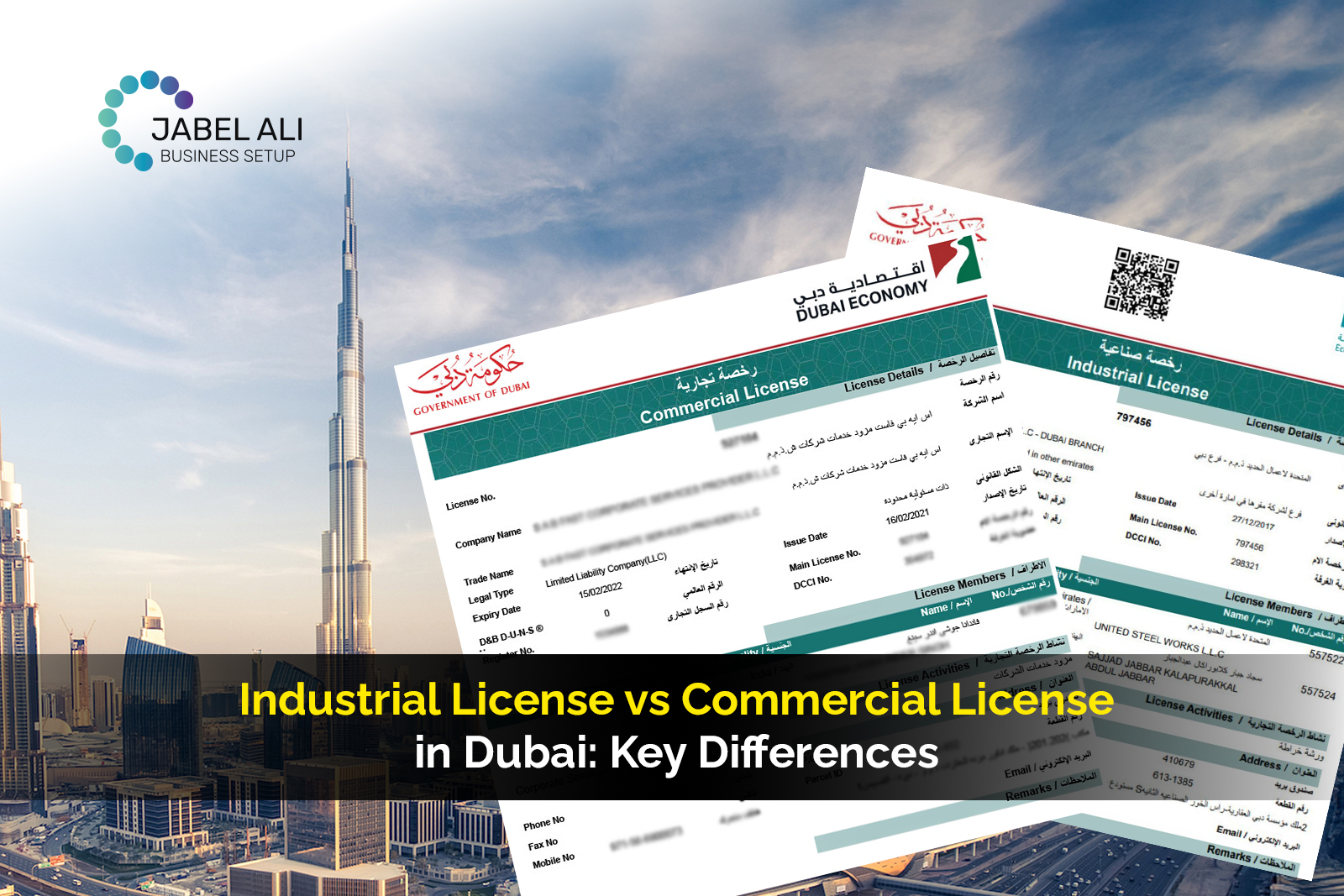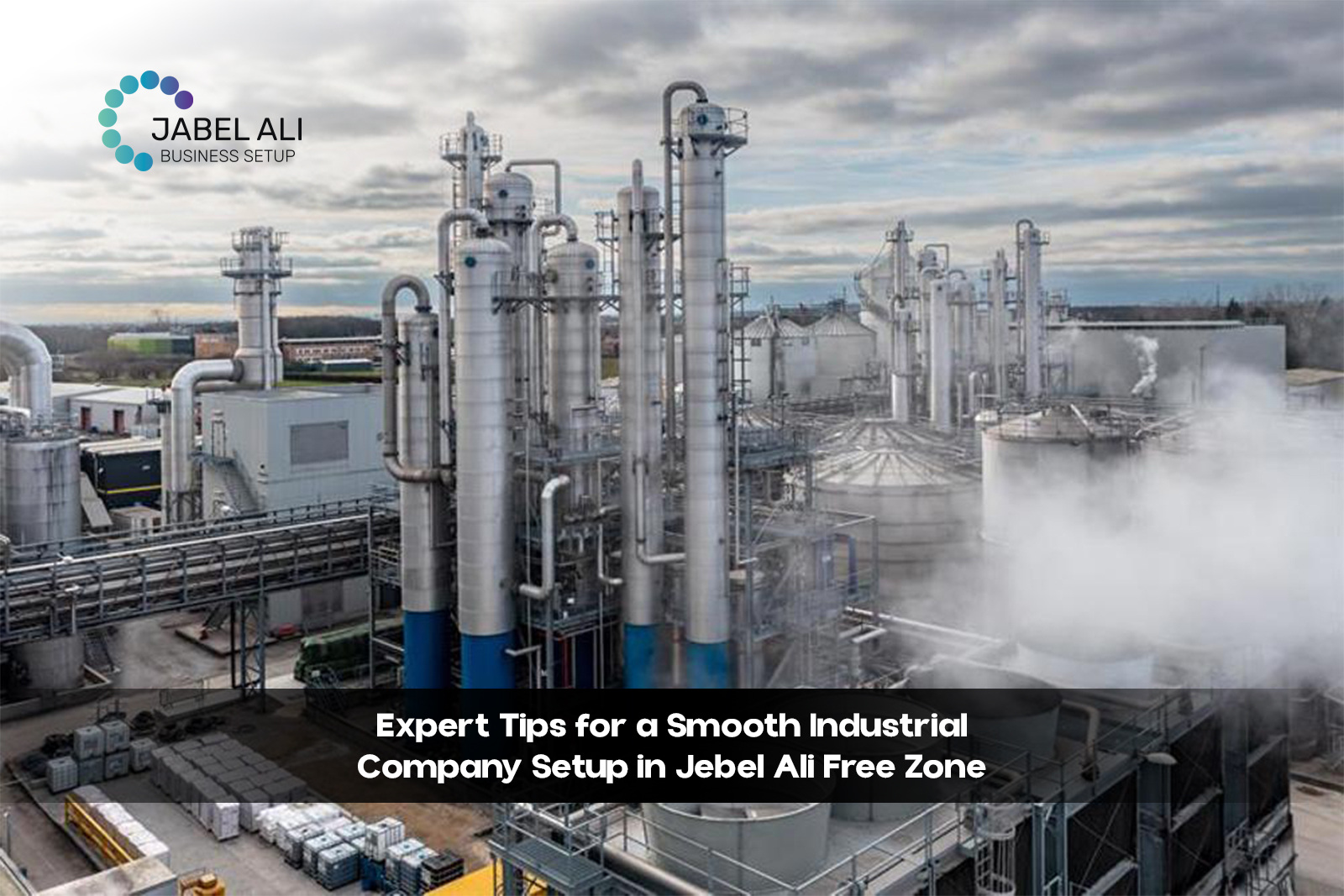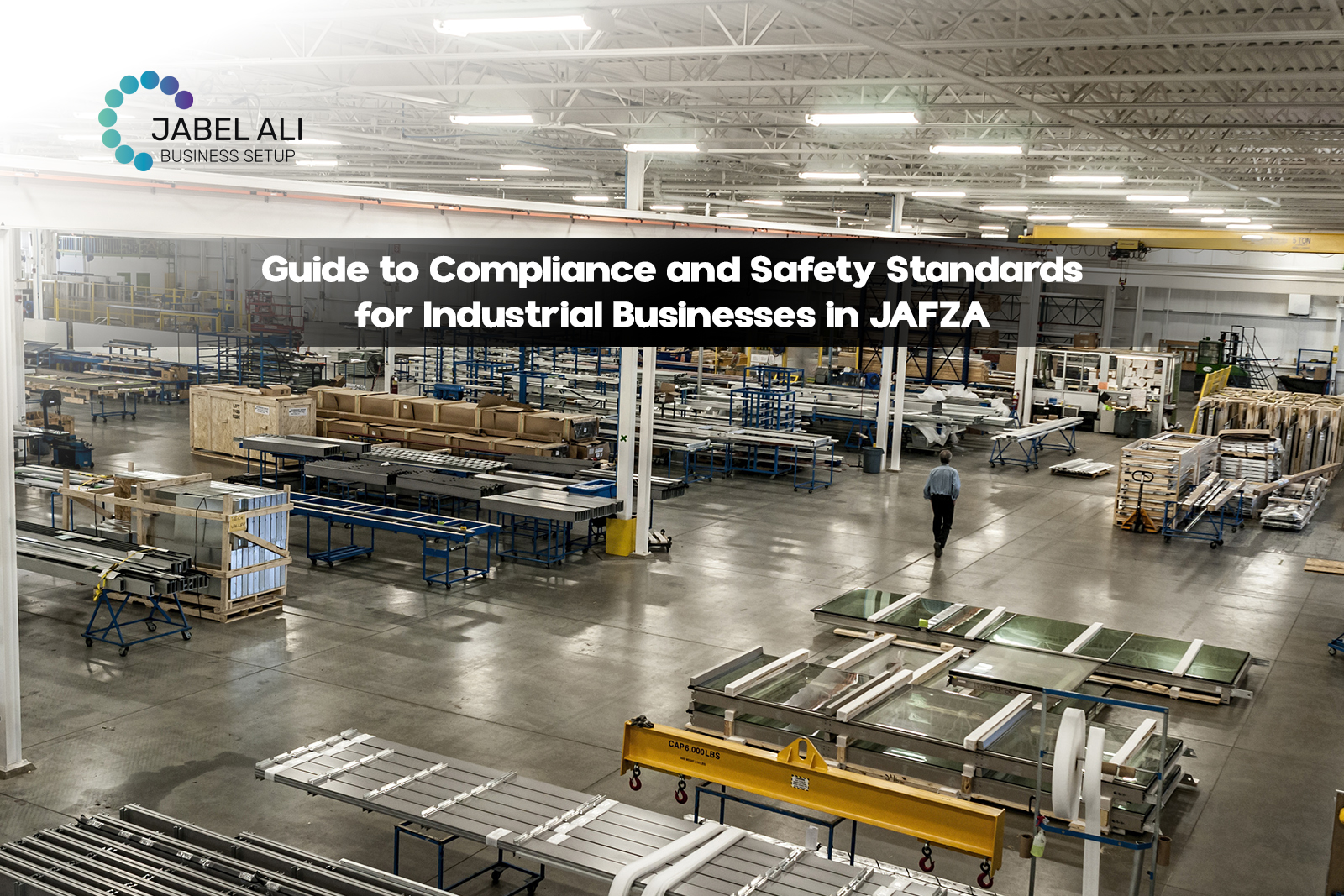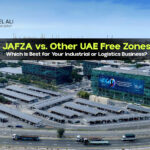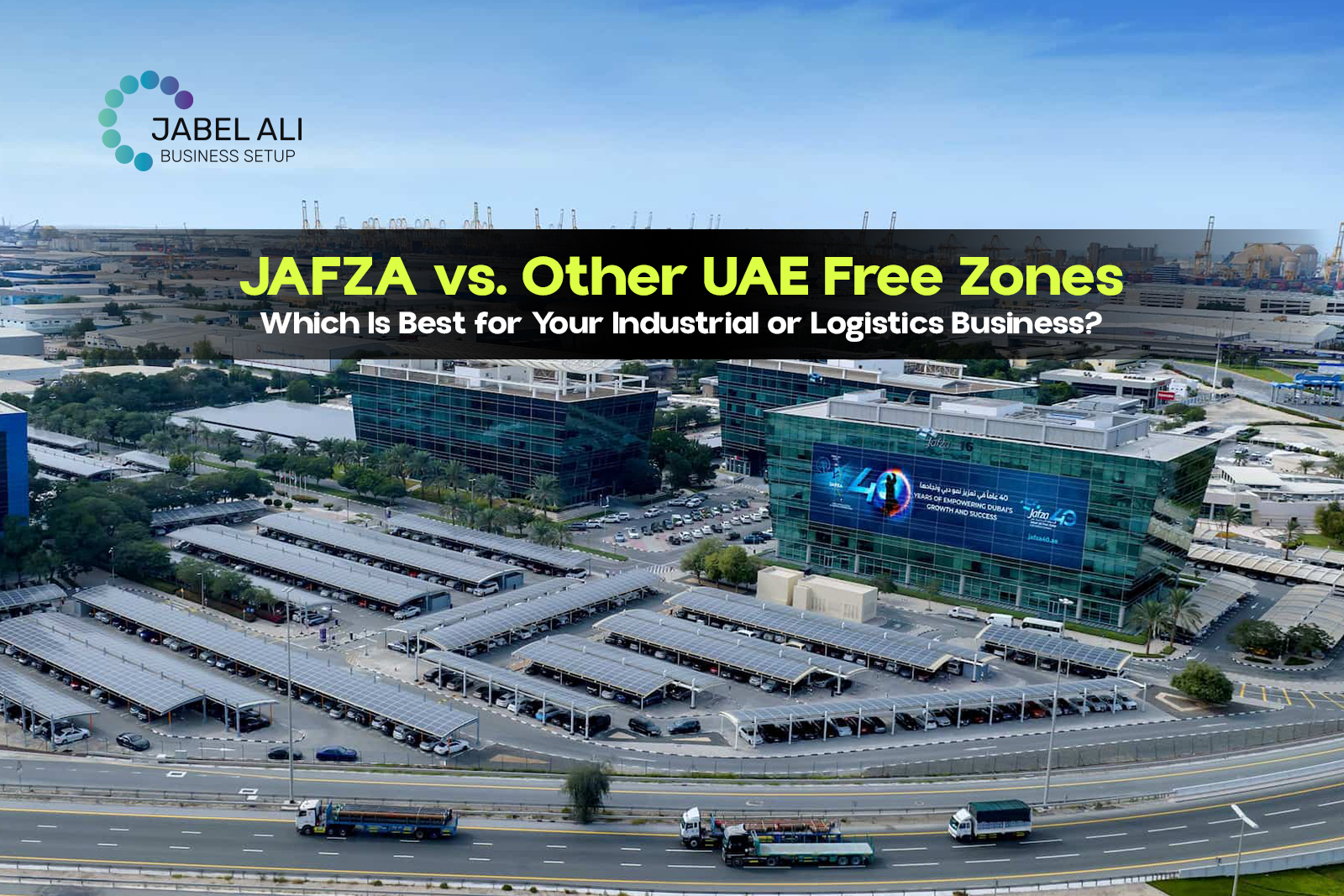Setting up an industrial business in Dubai can be exciting, but it comes with its fair share of rules, regulations, and safety requirements. If your business is in Jebel Ali Free Zone (JAFZA), understanding compliance and safety standards is not optional, it’s mandatory. The good news? With the right knowledge, adhering to JAFZA regulations can be straightforward, helping your business operate smoothly, safely, and profitably.
In this comprehensive guide, we’ll walk you through everything industrial businesses need to know about JAFZA compliance, safety, and operational standards in 2025. From environmental health and safety (EHS) requirements to fire protection, traffic rules, and staff accommodations, consider this your ultimate roadmap to staying compliant.
Why JAFZA Compliance Matters
JAFZA is one of the world’s most prominent free zones, hosting over 8,500 companies across industrial, logistics, and manufacturing sectors. With its strategic location, tax benefits, and world-class infrastructure, it’s no wonder companies flock here. But with great opportunity comes great responsibility, compliance isn’t just a legal obligation; it’s a business advantage.
Here’s why:
- Operational Safety: Ensures your employees, assets, and production lines are protected.
- Legal Security: Avoid fines, penalties, or suspension of licenses for non-compliance.
- Sustainability: Proper EHS compliance reduces environmental impact and improves public image.
- Investor Confidence: Partners and stakeholders trust businesses that operate responsibly.
According to JAFZA 2024 audit reports, industrial facilities that maintain consistent compliance had 37% fewer workplace incidents, highlighting the tangible benefits of staying within regulations.
JAFZA Compliance Standards: The Basics
Before diving into safety specifics, let’s break down the essential JAFZA compliance standards:
- Licensing and Registration
Every industrial business in JAFZA must have:
- Valid industrial license issued by JAFZA
- Company registration documents updated annually
- Trade license renewal on time to avoid late penalties
2. Regular Audits
JAFZA mandates EHS compliance audits periodically. These audits assess:
- Environmental impact
- Employee safety practices
- Fire safety and emergency preparedness
- Waste management compliance
Failing an audit can result in fines or temporary shutdowns, making proactive adherence critical.
3. Documentation
Maintain a comprehensive record of:
- Safety protocols
- Hazardous material handling
- Accident reporting logs
- Staff training certificates
These documents are essential for inspections and demonstrate your commitment to workplace safety.
Environmental, Health, and Safety (EHS) Guidelines
Industrial operations carry inherent risks- JAFZA has robust EHS guidelines to mitigate hazards.
- Environmental Compliance
Companies must:
- Dispose of hazardous waste safely according to JAFZA rules
- Use approved waste containers for chemicals and industrial refuse
- Implement sewage management systems to prevent contamination
Pro tip: Conduct monthly checks of waste disposal practices to avoid fines.
- Workplace Safety
- Ensure industrial safety equipment is functional (helmets, gloves, masks, goggles)
- Provide ergonomic workstations where necessary
- Maintain clear evacuation routes and safety signage
- Accident Reporting
- Report all incidents immediately using JAFZA’s accident reporting procedures
- Maintain an incident logbook for internal tracking and audits
- Conduct post-incident reviews to prevent recurrence
Insight: Businesses that report and review incidents regularly reduce recurrence by up to 40%, according to a 2024 JAFZA EHS report.
Fire Protection Regulations
Fire safety is non-negotiable in industrial setups. JAFZA regulations include:
- Fire alarms and suppression systems installed and maintained
- Regular fire drills for all staff
- Clear emergency exits and evacuation routes
- Fire extinguishers at accessible points and staff trained in their use
Failure to comply can lead to fines or even suspension of industrial operations.
Tip: Schedule fire system inspections quarterly and document each check.
Traffic and Vehicle Safety Rules
JAFZA isn’t just about factories, it’s a full-fledged industrial hub with significant vehicle movement. Rules include:
- Speed limits strictly enforced within the free zone
- Proper vehicle parking zones for industrial vehicles
- Traffic safety training for employees operating forklifts, trucks, or heavy machinery
Why it matters: Accidents on-site can halt production and attract fines, so preventive measures save money and time.
Staff Accommodation and Welfare Standards
Industrial businesses in JAFZA often provide on-site accommodation. Compliance includes:
- Adequate living spaces meeting JAFZA’s safety standards
- Ventilation, lighting, and sanitation for all rooms
- Access to clean drinking water, kitchens, and recreational areas
- Compliance with public health levy requirements
Remember, happy and safe employees are productive employees.
Emergency Control Procedures
JAFZA requires every industrial business to maintain emergency control procedures:
- Emergency response plans for fire, chemical spills, or accidents
- Designated emergency coordinators trained to manage incidents
- Regular mock drills to ensure staff readiness
Tip: Review emergency protocols semi-annually and adjust as your operations evolve.
Hazardous Waste and Sewage Management
Proper disposal of hazardous waste and sewage is a key JAFZA requirement:
- Hazardous chemicals must be labeled, stored, and disposed of according to EHS standards
- Sewage systems must prevent leakage and contamination
- Businesses should use certified waste disposal contractors
Smart practice: Keep a digital log of all waste disposal activities, it simplifies audits and compliance tracking.
JAFZA Compliance Audit: How It Works
- Audit Scope
Auditors check:
- EHS compliance
- Fire and traffic safety measures
- Waste management systems
- Staff accommodations
- Emergency preparedness
- Preparing for Audit
- Maintain updated documentation
- Conduct internal safety inspections regularly
- Train staff to handle on-site auditor queries
- Common Audit Findings
- Missing hazard labels
- Expired fire equipment inspections
- Poor waste segregation
- Incomplete incident logs
Tip: Use a JAFZA EHS compliance checklist PDF to self-audit before the official audit.
Key Takeaways for Industrial Businesses
- Documentation is everything: Maintain logs for accidents, waste disposal, and staff training.
- Proactive safety measures reduce penalties: Regular audits prevent fines and operational halts.
- Employee welfare is critical: Safe accommodations and workspaces improve productivity.
- Fire and traffic safety cannot be ignored: Prevention saves lives and money.
- Emergency readiness saves time and reputation: Conduct drills and keep plans updated.
How Vista Properties Supports Industrial Businesses in JAFZA
Navigating JAFZA’s compliance and safety regulations can be overwhelming, but you don’t have to do it alone. At Vista Properties, we provide:
- Guidance on industrial site selection compliant with EHS and safety regulations
- Assistance with license setup and renewal
- Support for compliance audits and documentation management
- Advisory services for staff accommodations and facility safety
Our goal: Let you focus on growing your industrial business while staying fully compliant.
Compliance and safety in JAFZA aren’t just rules, they’re the backbone of a sustainable industrial operation. By understanding EHS standards, fire safety, traffic regulations, staff accommodations, and emergency protocols, businesses can operate efficiently while protecting employees, assets, and the environment.
Pro tip: Treat compliance as an opportunity to streamline operations, not a hurdle. Businesses that embrace regulations often see improved productivity, better employee satisfaction, and stronger investor confidence.
With the right approach, JAFZA compliance can be a competitive advantage, making your industrial business a model for safety, efficiency, and profitability.
Key Resources
- JAFZA EHS Guidelines PDF – For detailed safety standards
- JAFZA Compliance Checklist – For pre-audit preparation
- Fire Safety & Traffic Rules Manual – For employee training
If you’re planning to set up or expand your industrial business in JAFZA, don’t leave compliance to chance. Contact Vista Corporate Group today for expert guidance on licensing, EHS compliance, and safe operations. Let’s make your JAFZA industrial journey smooth, secure, and successful.



